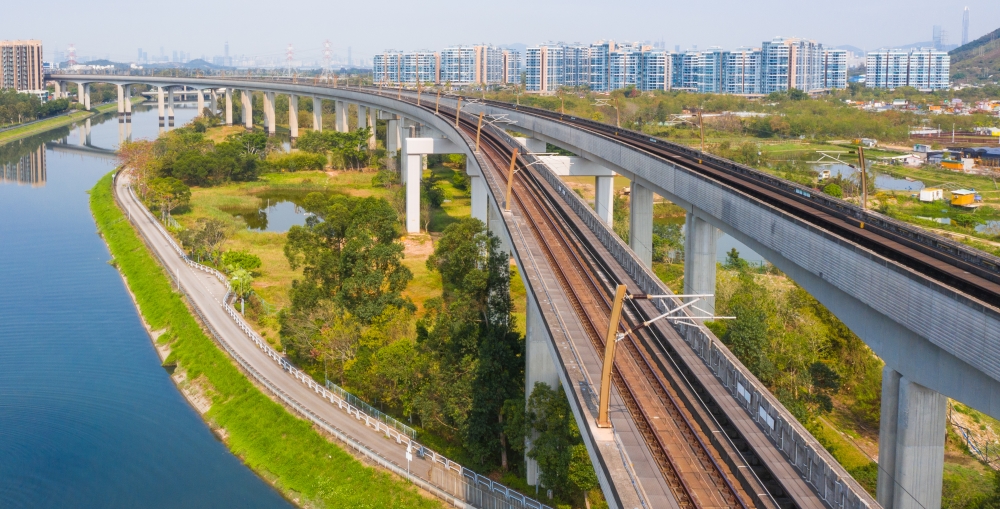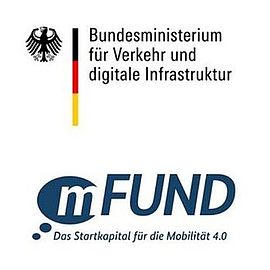The DEEB-INFRA research project (Data-based Extrapolation Model for Determining Real Operating Load Trains for Residual Life Analysis of Railway Infrastructure Facilities) was recently launched: Over the next three years, a German-Austrian consortium led by Darmstadt University of Technology will be researching an optimized method for assessing the condition of railroad infrastructures such as bridges, tunnel structures or noise barriers. The AIT Austrian Institute of Technology and REVOTEC are part of the top-class consortium as Austrian partners. AIT is particularly involved in the development of an extrapolation method for data from axle load measurement points as well as a new method for the acquisition of axle load measurement data with fast and easy-to-apply sensors in the network of the project partner Deutsche Bahn AG. DEEB-INFRA is funded with a total of 980,000 euros by the German Federal Ministry of Transport and Digital Infrastructure (BMVI) as part of the Modernity Fund (mFUND) funding initiative.
Structural monitoring by means of current data for specific lifetime prognosis
To determine the remaining service life of existing bridges, idealized load models for the past and assumptions about future traffic volumes are conventionally used. However, these assumptions are subject to large uncertainties and therefore usually have a strongly conservative character. The potential service life of a structure until it is repaired is thus not fully exploited.
In addition to classic structural monitoring facilities, the European rail network also has numerous measuring points for monitoring maximum axle loads and determining wheel out-of-roundness. In smaller countries in particular, such as the Netherlands, Switzerland and Austria, these axle load measuring points have already been installed throughout the country. The data obtained in this way cannot currently be used to determine the remaining service life of the built rail infrastructure. However, with knowledge of the real acting train loads, statements on bridge aging with regard to maintenance could be significantly improved.
This is where DEEB-INFRA comes in: As part of the project, work is being done to make the data already collected at existing axle load measuring points in the European rail network usable for the service life analysis and maintenance planning of infrastructure facilities, especially bridge structures. The aim is to optimize the timing of any necessary strengthening measures or new construction and to better control inspection intervals. This could result in considerable cost savings for the operator and at the same time increase the availability of the network.
Significant contribution to resilient and sustainable infrastructure
The holistic evaluation of axle load measurement data from several European countries allows the calibration of the measurement systems to each other and the harmonization of the data quality in the European context. In addition, a statistically based area-wide transferability of the results to structures and lines not instrumented with sensors is made possible.
The information obtained in this way can make a significant contribution to a safe and resilient railroad infrastructure, explains Alois Vorwagner, Thematic Coordinator for Structural Dynamics & Life Cycle Engineering at the AIT Austrian Insitute of Technology: "The extrapolation model co-developed by AIT is the basis for refining the measurement data and thus the basis for innovative asset management." As a result, the project operators expect an extension of the remaining service life of existing bridge structures by up to 20% compared to the current conservative approach. "This means significantly improved availability of the infrastructure with simultaneous resource savings - entirely in the sense of a sustainable, future-proof transport infrastructure," explains Vorwagner.
The DEEB-INFRA project consortium
Technische Universität Darmstadt, Institut für Statik und Konstruktion
AIT Austrian Institute of Technology
Deutsche Bahn AG – DB Training Learning & Consulting
About the mFUND of the BMVI
As part of the mFUND research initiative, the German Federal Ministry of Transport and Digital Infrastructure (BMVI) has been funding research and development projects related to data-based digital applications for Mobility 4.0 since 2016. In addition to financial support, mFUND also supports networking between stakeholders from politics, industry and research with various event formats and access to the mCLOUD data portal. For more information, visit www.mfund.de.





